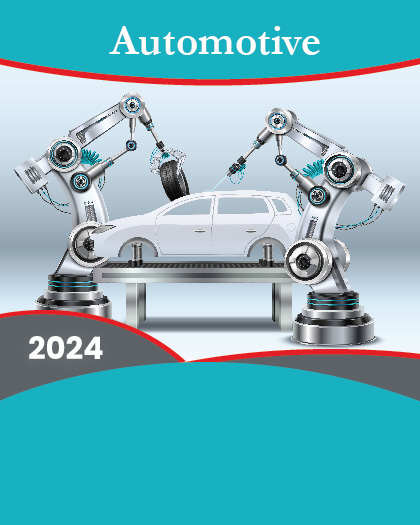
Variable valve actuation (VVA) technologies are used to add flexibility to the engine?s valve train by enabling variable valve event timing, duration and/or lift.
The global average price of Variable Valve Actuation is in the decreasing trend, from 149 K USD/Unit in 2011 to 137 USD/Unit in 2015. With the situation of global economy, prices will be in decreasing trend in the following five years.
The classification of Variable Valve Actuation includes 4 Cylinder, 6 Cylinder and others, and the proportion of 4 Cylinder in 2015 is about 90%, and the proportion is in decreasing trend from 2011 to 2015.
Variable Valve Actuation is widely used in Gasoline Engine and Diesel Engine. The most proportion of Variable Valve Actuation is used in Gasoline Engine and the production proportion in 2015 is about 96%.
China region is the largest supplier of Variable Valve Actuation, with a production market share nearly 31% in 2015. Japan & Korea is the second largest supplier of Variable Valve Actuation, enjoying production market share about 23% in 2015.
China is the largest consumption place, with a consumption market share nearly 29% in 2015. Following China, Japan & Korea is the second largest consumption place with the consumption market share of nearly 23%.
Market competition is not intense, Borgwarner, Schaeffler, Hilite, Aisin Seiki, Denso etc. are the leaders of the industry, and they hold key technologies and patents, with high-end customers; have been formed in the monopoly position in the industry.
According to this study, over the next five years the Variable Valve market will register a 4.9% CAGR in terms of revenue, the global market size will reach USD 12600 million by 2024, from USD 9480 million in 2019. In particular, this report presents the global market share (sales and revenue) of key companies in Variable Valve business, shared in Chapter 3.
This report presents a comprehensive overview, market shares, and growth opportunities of Variable Valve market by product type, application, key manufacturers and key regions and countries.
This study considers the Variable Valve value and volume generated from the sales of the following segments-
Segmentation by product type- breakdown data from 2014 to 2019, in Section 2.3; and forecast to 2024 in section 11.7.
4 Cylinder
6 Cylinder
Other
Segmentation by application- breakdown data from 2014 to 2019, in Section 2.4; and forecast to 2024 in section 11.8.
Gasoline Engine
Diesel Engine
This report also splits the market by region- Breakdown data in Chapter 4, 5, 6, 7 and 8.
Americas
United States
Canada
Mexico
Brazil
APAC
China
Japan
Korea
Southeast Asia
India
Australia
Europe
Germany
France
UK
Italy
Russia
Spain
Middle East & Africa
Egypt
South Africa
Israel
Turkey
GCC Countries
The report also presents the market competition landscape and a corresponding detailed analysis of the major vendor/manufacturers in the market. The key manufacturers covered in this report- Breakdown data in in Chapter 3.
Borgwarner
Schaeffler
Hilite
Aisin Seiki
Denso
Hitachi
Delphi
Eaton
Jiangsu Hailong
Fulin P.M.
In addition, this report discusses the key drivers influencing market growth, opportunities, the challenges and the risks faced by key manufacturers and the market as a whole. It also analyzes key emerging trends and their impact on present and future development.
Research objectives
To study and analyze the global Variable Valve consumption (value & volume) by key regions/countries, product type and application, history data from 2014 to 2018, and forecast to 2024.
To understand the structure of Variable Valve market by identifying its various subsegments.
Focuses on the key global Variable Valve manufacturers, to define, describe and analyze the sales volume, value, market share, market competition landscape, SWOT analysis and development plans in next few years.
To analyze the Variable Valve with respect to individual growth trends, future prospects, and their contribution to the total market.
To share detailed information about the key factors influencing the growth of the market (growth potential, opportunities, drivers, industry-specific challenges and risks).
To project the consumption of Variable Valve submarkets, with respect to key regions (along with their respective key countries).
To analyze competitive developments such as expansions, agreements, new product launches, and acquisitions in the market.
To strategically profile the key players and comprehensively analyze their growth strategies.
























